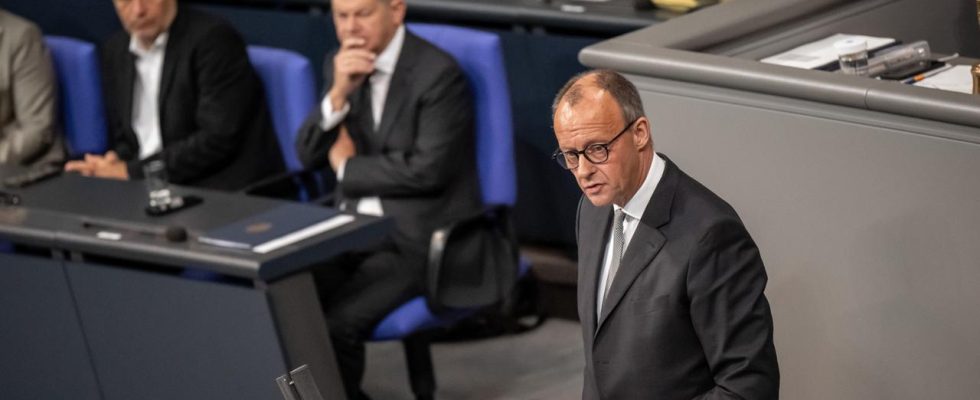The government is under pressure to act on migration policy. But the Union, as the largest opposition party, also has to find a line. It is currently oscillating between collaboration and attack.
For the Union, the migration issue may be about everything. At least that’s how CDU executive committee member Jens Spahn puts it on the online platform “The Pioneer”: “Either the parties in the democratic center end the issue of irregular migration or irregular migration ends the democratic center.”
So it’s a question of existence. Especially because the party base wants a correction after the more liberal Merkel years, analyzes political scientist Uwe Jun from the University of Trier. The CDU surveyed its members themselves and the majority were in favor of more restrictive solutions. “And that is also seen as capable of gaining a majority in the party leadership, also in order to completely unite the party again,” he says.
The pressure from the Union’s local political forces is also growing. And according to Jun, the majority of those eligible to vote are dissatisfied with current migration policy anyway. “So what should you advise politicians? They have to do a mixture of symbolic politics. That means that they take individual symbolic steps that indicate that they have recognized and understood the problem,” said the political scientist.
“The hand is outstretched”
In his opinion, this includes tightening deportation rules. Maybe also the lowering of social standards for people who arrive here. But perhaps also a joint effort from politicians – the largest opposition faction, the CDU/CSU, together with Olaf Scholz’s federal government.
On the one hand, the Union wants that. On the other hand, it also wants to be the opposition and is now accusing the government of inaction. Although Interior Minister Nancy Faeser has just introduced a law for stricter deportation rules that takes up many of the Union’s proposals. But: It only affects a few people, so it will hardly provide relief for cities and communities. In addition, it is practically impossible to reduce immigration on a national scale alone.
And party leader Friedrich Merz is irritating with false statements about the alleged preference given to rejected asylum seekers at the dentist. On the other hand, he says: “The hand is outstretched to the coalition. We accept this offer – to work together, especially on the most pressing problem that we have to deal with in our country, namely dealing with the refugee crisis.”
Scholz asks Merz for approval
Just this week the Chancellor wrote a letter to Merz. In it he asks the head of the largest opposition faction in the Bundestag to agree to the stricter deportation rules. One reason for this may be the criticism from the ranks of his traffic light coalition.
The Left sees another problem, says party leader Janine Wissler: “The Federal Interior Minister’s proposals practically do not solve a single problem. But they exacerbate existing social moods.” In doing so, she is giving in to right-wing demands. Which, in Wissler’s opinion, benefits the AfD.
And if this continues, the migration issue could actually become an existential question for the political center – and especially for the CDU/CSU.

